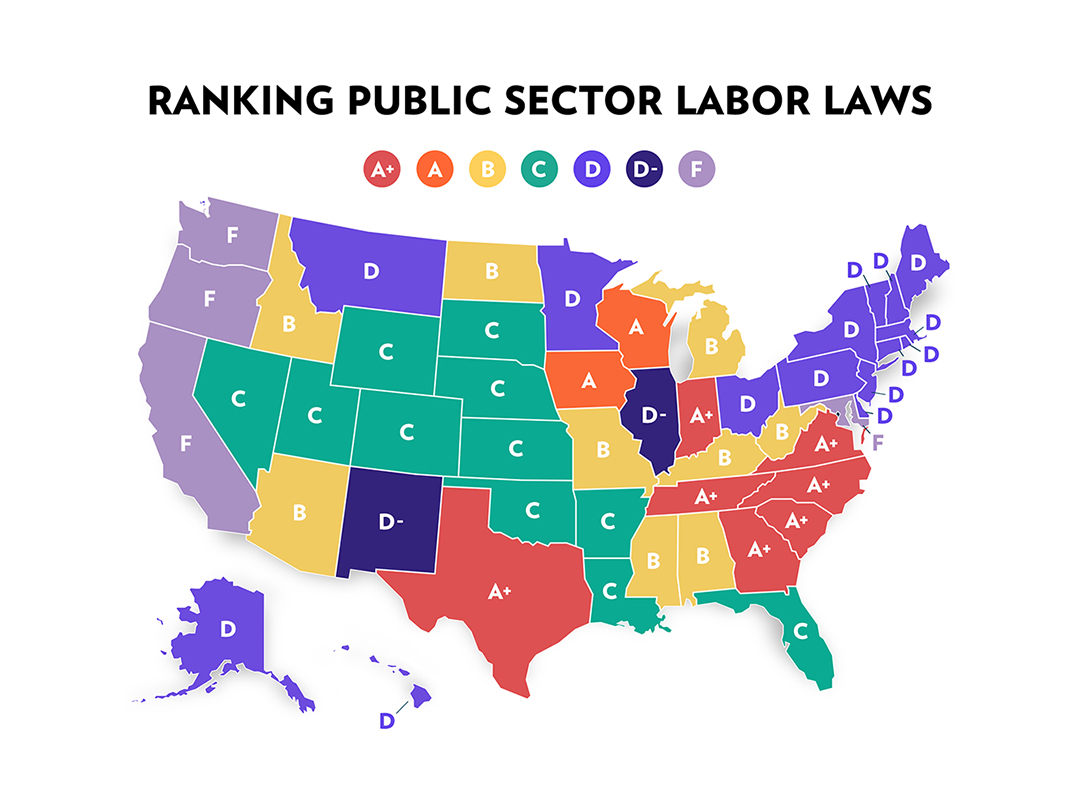Report

The Janus Impact and Grading of State Public Sector Labor Laws
On the first anniversary of the Janus v. AFSCME Supreme Court ruling, U.S. senators introduced a bill that would enshrine collective bargaining as a right in federal law for America’s government workers. The Janus decision, Senate Minority Leader Chuck Schumer (D-NY) scolded in a press release, was a “gut punch” to workers and part of recent “relentless attacks” on unions. The new bill is just one of the latest salvos in a national policy war between government union leaders and their allies and supporters of individual workers’ rights to reshape the U.S. labor landscape.
As we have noted in two earlier editions of this report, the last decade has seen an unprecedented sweep of pro-worker and economy-boosting public sector labor reforms across several states. For example, Wisconsin, Michigan, Indiana, West Virginia, and Kentucky all became right-to-work states. Missouri passed right-to-work in 2017, only to have it overturned in an August 2018 ballot initiative. Despite unions filing lawsuits against right-to-work laws in West Virginia, Wisconsin, and Kentucky, the courts upheld the reforms. Right-to-work states now outnumber forced-union states 27 to 23.
At the same time, legislative reforms that specifically cover state and local government workers have also been taking root—and encountering challenges in turn. For example, Iowa passed a raft of Wisconsin-like collective bargaining reforms in 2017. For most employees, the law limited the scope of bargaining to wages and enacted paycheck protection. The law also requires regular recertification of unions and stipulates that arbitrators must include the employer’s ability to fund a contract when choosing the best proposal. Though major unions sued the state over the law, the Iowa Supreme Court upheld the reforms in May 2019.
However, even the uptick in activity on labor issues over the past five years pales in comparison to the year following the 2018 Janus ruling. According to Ballotpedia, as of early August 2019, 102 Janus-related state bills were introduced and seven bills backed by labor leaders were enacted. A majority of these 2019 bills contained union-backed policies. They represented an effort to codify union privileges that may have simply been negotiated at the contract level before; shore up the scope of collective bargaining; and unionize new groups of government employees.

Explore the online, interactive version of the 50 state public sector labor law database at http://www.commonwealthfoundatio.org/state_labor_laws/.